Share
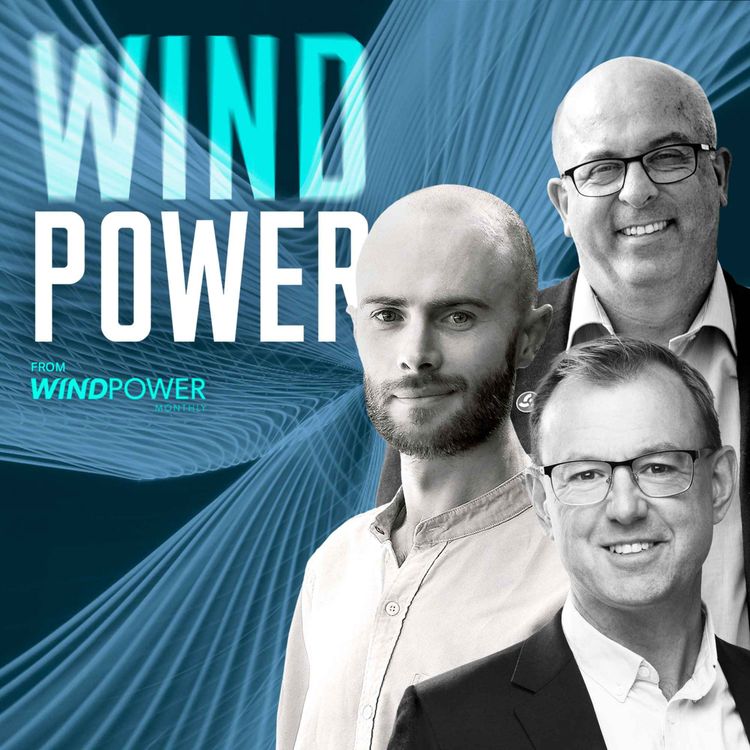
Wind Power
Can floating wind power Norway’s energy transition?
Season 1, Ep. 34
•
As a country, Norway is heavily reliant on oil and gas exploitation to meet its energy demands. However, with the climate crisis encouraging a break from fossil fuels, Norway is increasingly looking to offshore wind to help with its energy transition.
The country’s deep coastal waters mean most offshore wind in Norway will need to be built on floating platforms, and therefore rely on a technology that remains in its infancy around the world.
In episode 27 of the Windpower Podcast, we spoke with two leading experts on Norwegian offshore wind to see whether floating wind can meet the demands of Norway’s energy transition, and what challenges it might face along the way.
This episode was produced by Inga Marsden.
More episodes
View all episodes

63. Christmas special: What were the biggest industry themes in 2025?
15:13||Season 1, Ep. 63Windpower Monthly editor Ian Griggs and reporters Robyn White and Orlando Jenkinson talk about the issues and themes which defined 2025 for them in this special Christmas edition of the Wind Power podcast.The conversation covered Donald Trump's election in the US and the effect on the country's wind power targets China's runaway ambition on wind technology and build-out and the finances of the major OEMs.Also in this episode, the team talks about some of the stories they enjoyed working on.This episode was produced by Inga Marsden.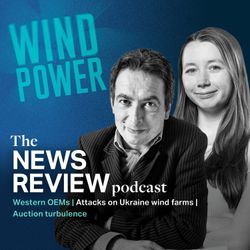
62. News Review: Western OEMs | Attacks on Ukraine wind farms | Auction turbulence
36:22||Season 1, Ep. 62In this episode, we examine the shifting financial landscape for Western turbine manufacturers, and why there appears to be widespread restructuring across the sector. Is this a sign of deeper strain, or a natural shift towards tighter, efficiency focused business models?We also turn to Ukraine, where Russia has targeted wind farms in a series of attacks. With drones increasingly used in conflict zones, what does this mean for the security of renewable energy, and how should developers and investors operating near frontlines reassess risk?Finally, the team looks at the latest turbulence in European offshore wind auctions. Denmark faces developer pushback and legal threats over revised tender terms, while the Netherlands saw no bids for a 1GW site. Are rising costs and policy uncertainty now outpacing the ability of existing tender designs to attract investment?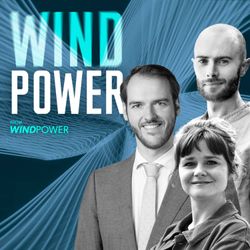
61. Why community support is vital for wind power's future
30:01||Season 1, Ep. 61Community engagement can make or break any wind farm project. In this episode of the Windpower Podcast, we discuss the importance of getting this crucial stage of the development process right and making it fair for all concerned with two industry experts. Gaining community support is often an essential step for the future viability of new wind farm, with supportive communities providing strong foundations for a successful project, while resistance from local communities can hold up or even end the prospects for a future site. General lessons from positive community enagement include an approach that puts listening first and foremost, being attentive to what the nearby community needs, how they might feel about their "new neighbours" and developing a collaborative approach based on transparency and trust. These techniques are highlighted by some of the best specific examples of how community engagement done right can help everyone, from the remote town in Germany that turned its fortunes around with a suspension bridge built with wind industry support, to grassroots activism in Bristol in the UK channeling the funds of a successful wind farm into much needed community projects. Meanwhile, a rise in disinformation about wind power is increasing distrust of the technology and dismissing the benefits it can bring to local areas. While this is an issue that goes beyond the wind industry, sometimes it can best be addressed by highlighting the living proof of the benefits brought to communities already hosting successful wind farms. This episode was produced by Inga Marsden and Jude Owen.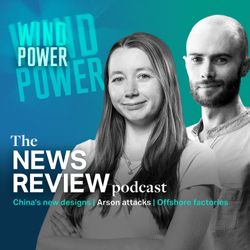
60. News review: China's new designs | Arson attacks | Offshore factories
37:23||Season 1, Ep. 60Welcome to the Wind Power News Review – hosted by Windpower Monthly's senior reporter, Robyn White, and Windpower Monthly's reporter, Orlando Jenkinson – along with our regular panellists, Sorcha Versteeg and Shashi Barla. This time on the News Review, we take a closer look at some of the major new turbine announcements coming out of the world’s primary wind energy power – China – and discuss how the country’s massive installation targets are helping shape its domestic wind industry. Meanwhile in Europe, a growing number of violent attacks against wind power projects have occurred. Is the spread of disinformation about renewable energy to blame? Finally, we take a look at the contrasting fortunes of offshore wind factory projects in Europe, with Vestas and Siemens Gamesa halting work on planned offshore turbine plants while other companies push forward. This episode was produced by Jude Owen and Inga Marsden.Windpower Monthly is now on Bluesky – follow us at @windpowermonthly.bsky.social for all the latest updates.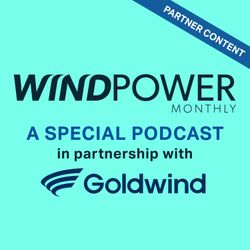
Sponsored Podcast - Goldwind VP: Smarter wind power for a market-driven future
09:21|In this sponsored edition of the Wind Power podcast, as part of China Wind Power 2025, Kai Wu, vice president of Goldwind and chairman of Goldwind International, discusses the company’s response to China’s new market environment and what it means for global developers and investors.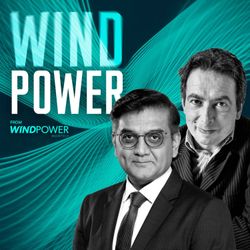
59. Suzlon co-founder: ‘We’ll build an offshore turbine when the time is right’
36:43||Season 1, Ep. 59Girish Tanti, co-founder of Indian turbine firm Suzlon Energy, discusses India’s renewable energy journey, why offshore wind does not hold the same appeal in India as it does in Europe and the country’s trajectory towards energy security.Tanti, a key figure in India’s renewable energy industry, spoke about why leadership from the country’s federal government has helped set the tempo for clean energy installations and how deregulation has opened up previously untapped markets.He also spoke to Windpower Monthly’s editor, Ian Griggs, about the need for energy security in a multi-polar world and how India could one day be a net exporter of clean energy to neighbouring states. This episode was produced by Inga Marsden.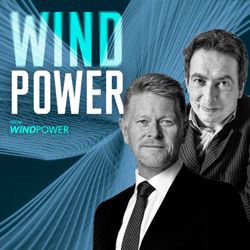
58. Vestas CTO Anders Nielsen on turbine sizes, skills and retirement
29:57||Season 1, Ep. 58Vestas’ outgoing chief technology and operations officer, Anders Nielsen, talks about why the wind industry is reaching the end of the line on turbine sizes and what he is looking forward to in his retirement. Nielsen handed over the reins as CTOO to his successor, Felix Henseler, on 1 September. He will leave Vestas at the end of 2025 after a five-year stint leading the turbine firm’s technology offer.He spoke to Windpower Monthly’s editor, Ian Griggs, about his tenure at the Danish firm, including the impact of COVID, the war in Ukraine and the European wind industry’s competition with China. This episode was produced by Inga Marsden.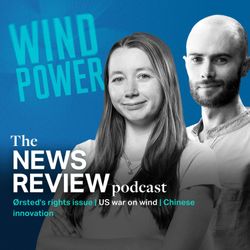
57. News review: Ørsted's rights issue | US war on wind | Chinese innovation
38:52||Season 1, Ep. 57Welcome to the Wind Power News Review – hosted by Windpower Monthly's senior reporter, Robyn White, and Windpower Monthly's reporter, Orlando Jenkinson – along with our regular panellists, Will Sheard and Shashi Barla.This time on the News Review, we ask our panellists for their views on Danish renewables major Ørsted’s plans for an €8 billion capital raise to shore up its finances amid an increasingly fraught offshore wind market. Ørsted’s difficulties are being compounded by relentless attacks on domestic wind power in the United States made by the US government under President Donald Trump, which continues to declare new policies and stop work orders that threaten to undermine wind power’s viability stateside. How much more can the US wind industry take, and what does the future hold? Across the Pacific, meanwhile, the world’s largest wind power market – China – continues to forge ahead with innovation as unprecedented new technologies from major manufacturers are unveiled. Our panellists examine the viability of these new designs. This episode was produced by Inga Marsden.Windpower Monthly is now on Bluesky – follow us at @windpowermonthly.bsky.social for all the latest updates.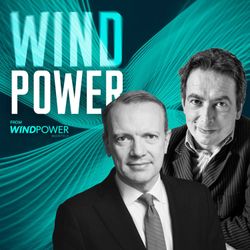
56. WindEurope’s outgoing CEO goes back to school
28:17||Season 1, Ep. 56Giles Dickson, WindEurope’s outgoing CEO, discusses the challenges and achievements of his ten-year tenure leading the trade body, offers some sound advice to his successor and tells Windpower Monthly why he is going back to school. Earlier this summer, the wind industry received a shock announcement that Dickson will be stepping down at the end of 2025 to pursue a career as a schoolteacher in England.Following his announcement, Windpower Monthly’s editor, Ian Griggs, interviewed the outgoing CEO and asked him to reflect on his decade leading WindEurope, including how global events shaped his tenure, his achievements and why he chose this moment for a change of direction.This episode was produced by Inga Marsden.Windpower Monthly is now on Bluesky – follow us at @windpowermonthly.bsky.social for all the latest updates.